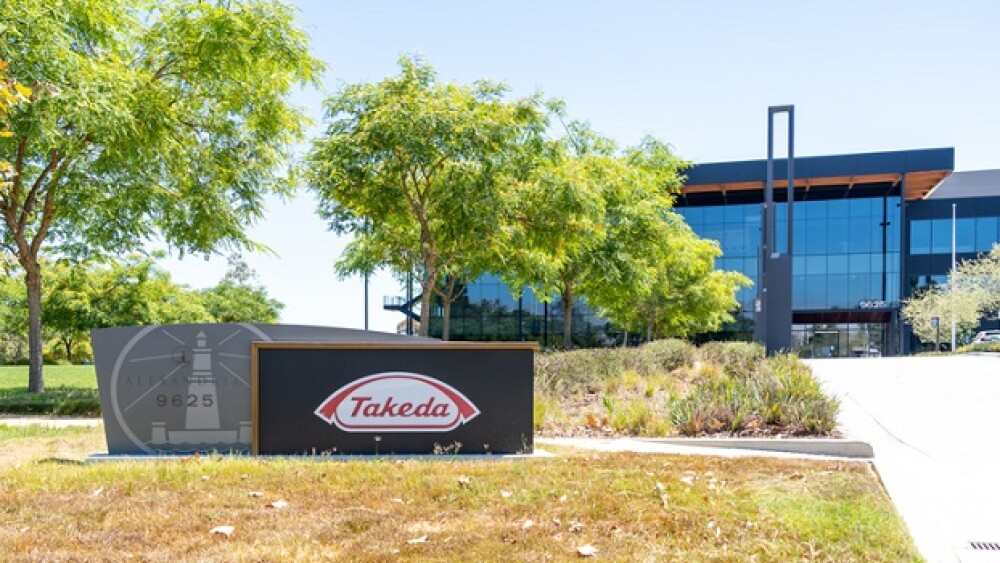Despite beating analyst expectations, Takeda sustains a mid-stage defeat in a rare genetic disorder, leaving the fate of an investigational enzyme replacement therapy uncertain.
Pictured: Takeda sign at its office in California/iStock, JHVEPhoto
Takeda’s investigational enzyme replacement therapy TAK-611 did not meet its primary and secondary endpoints in a Phase II trial, the company revealed Thursday during its first quarter earnings report for fiscal year 2023.
The Japanese multinational is currently conducting further analysis of the data and is looking at all possible options for TAK-611, “but given these outcomes, the program unfortunately is likely to be discontinued,” Andy Plump, Takeda’s president of R&D, said in an investor call Thursday.
Designed to be administered intrathecally, TAK-611 is a recombinant human arylsulfatase A enzyme replacement therapy. The candidate is being developed for metachromatic leukodystrophy (MLD), a rare genetic lysosomal storage disease characterized by a pathogenic build-up of lipids in cells, particularly in the nervous system, which lead to the progressive loss of organ function.
MLD is commonly caused by mutations on the gene that encodes for the arylsulfatase A enzyme, which under healthy conditions is crucial for the breakdown of these lipids.
TAK-611 had previously earned the Japanese Ministry of Health, Labor and Welfare’s Orphan Drug Designation. Takeda’s neuroscience group was supposed to take charge of TAK-611’s development starting in the first quarter of fiscal year 2023, though the candidate’s future now remains uncertain.
As in the case of TAK-611, the prospects of Takeda’s oral EGFR inhibitor Exkivity (mobocertinib) in non-small cell lung cancer are now unclear. In the most recent quarter, the Phase III EXCLAIM-2 trial, which pitted Exkivity monotherapy against chemotherapy as a first-line treatment option, was stopped for futility. The company will discuss the best next steps for the program with regulators.
Takeda’s dengue vaccine TAK-003 also suffered a setback during the first fiscal quarter, when the Japanese pharma voluntarily withdrew its Biologics License Application after the FDA sought additional data that fell beyond the scope of the Phase III trial it ran for the candidate.
TAK-003 is approved in other countries, such as the UK, Thailand and Brazil, where it is sold under the brand name Qdenga.
Despite these headwinds, however, Takeda’s performance exceeded analyst expectations. The company posted total revenue of approximately $7.6 billion, representing an 8.9% increase from the same period the year before. Its operating profits came in at $1.2 billion, a 12% improvement from last year.
Takeda maintained its full-year revenue forecast of around $27.6 billion and expects a low-single-digit percent decline.
Tristan Manalac is an independent science writer based in metro Manila, Philippines. He can be reached at tristan@tristanmanalac.com or tristan.manalac@biospace.com.






